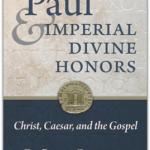In a critique of Locke’s theory of consent (and more extreme varieties), Stephen RL Clark (Civil Peace and Sacred Order) invokes the ancient Irish system of gessa (s. geis). These are obligations placed “chiefly on great chieftains and warriors, to do or forbear, with the mythological sanction that a violation of gessa will lead immediately to death, and the psychological that such violation precisely violates the individual’s own sense of self-worth, courage, identity. A chief is known to be doomed if his weird leads him into situations where one geis or other must be violated: he must refuse to share a meal with a chance-met companion—which is forbidden to him—or else eat the flesh of an animal that is forbidden him.” Since identities “are discovered or created precisely in our acceptance of objective obligation,” the violation of an obligation is a disturbance of identity (77–8). Gessa are the Irish equivalent of South Pacific taboos.
The theoretical payoff: “We grow up among such gessa, such obligations, spells, and dares. So far from being a literal ‘superstition,’ something left over from a metaphysical or religious system that gave it sense, it is the geis which gives birth to the system, or to many systems!” It’s impossible to “justify the everyday moral and legal practices of our society on the basis of the liberal intuition, the doctrine that we can only be obliged to obey those authorities that we have consented to obey or that we ourselves see present reason to obey” (78).
Clark realizes that he’s slipping toward Filmer (Locke’s great opponent) but he doesn’t mind. He sees nothing absurd in Filmer’s suggestion that “kings, princes, and governors are in fact given reverence by virtue of their being presented as natural authorities of the same kind as parents or heroes, magical figures on whom our attention is focused quite apart from any choice of ours” (79). Filmer, he thinks, is the better historian than Locke, since “our ‘natural state’ was never an accidental congress of unobligated strangers who must somehow create for themselves the possibility of mutual trust and respect for law.” Locke’s examples are all “gatherings of deracinated, exiled bandits, ‘a handful of adventurers brought together by necessity,’ and so lacking any sense of obedience to sacred law” (80).
That’s not where most of us start our lives: “What is natural to us is to live in families, alliances, and clans where particular figures stand out as our authorities and are themselves laid under gessa not of their own contrivance to take care of their subjects. If there were no such experienced obligations our obedience could only ever be a forced obedience, a laying down of arms for fear of the stronger sword. Political authority would always rest . . . simply with the most powerful group” (80). It doesn’t follow that these obligations are absolute or unlimited, but the limits are not determined by consent: “the limitations on princely or parental authority are themselves taboos, gessa, obligations which do not rest on any explicit contract.” Clark even thinks that Lockean liberalism is successful only because it borrows such obligations, only because it is founded on something other than consent. That Englishmen were able place limits on the power of kings showed that they had the power to lay a geis on him or remind “him of a geis laid by a superior” (80).
Clark, like Paul Kahn, puts liberalism in its place by showing that liberalism cannot provide a liberal defense of its own foundations.















